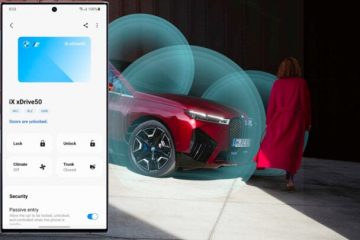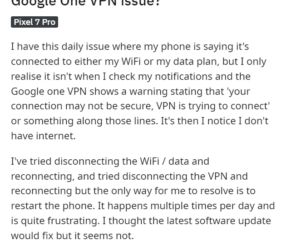สวิตช์ไฟอัจฉริยะที่ดีที่สุดจะช่วยให้คุณควบคุมระบบแสงสว่างได้ครอบคลุม มีความสามารถมากกว่าแค่เปิดและปิด!
การเชื่อมโยงกับระบบคลาวด์ คุณสามารถควบคุมสวิตช์ไฟอัจฉริยะจากโทรศัพท์ของคุณ ซึ่งหมายความว่าคุณสามารถกำหนดเวลาการเปิดและปิดไฟจากระยะไกลได้ ซึ่งมีประโยชน์เมื่อคุณกำลังพักผ่อนในวันหยุด คุณยังสามารถควบคุมพวกมันด้วยผู้ช่วยเสียง ดังนั้นจึงไม่จำเป็นต้องใช้สวิตช์! อย่างไรก็ตาม ด้วยตัวเลือกมากมาย การเลือกสวิตช์ไฟอัจฉริยะที่ดีที่สุดอาจดูน่ากลัว นั่นเป็นเหตุผลที่เราได้รวบรวมรายชื่อนักแสดงชั้นนำและแยกย่อยสิ่งที่แต่ละคนสามารถทำได้จริงๆ
สวิตช์ไฟอัจฉริยะที่ดีที่สุดคืออะไร
หลังจากทดสอบโมเดลนับไม่ถ้วนแล้ว เราขอแนะนำ GE C-Start Smart Switch Motion Sensing Dimmer เป็น สวิตช์ไฟอัจฉริยะที่ดีที่สุดโดยรวม เข้ากันได้กับฮับสมาร์ทโฮมส่วนใหญ่ รวมถึง Alexa, Google Home และ Apple HomeKit และคุณสมบัติเซ็นเซอร์ตรวจจับความเคลื่อนไหวในตัว ดังนั้นไฟจะเปิดโดยอัตโนมัติเมื่อคุณกลับมาถึงบ้าน นอกจากนี้ยังมาพร้อมกับเซ็นเซอร์วัดแสงรอบข้าง ซึ่งหมายความว่าจะปรับความสว่างได้เองหากมีแสงแดดส่องถึงในห้อง ช่วยให้คุณประหยัดเงินในการใช้พลังงานได้ในที่สุด! ด้วยป้ายราคาที่สมเหตุสมผลที่ 64 ดอลลาร์ แทบไม่มีข้อโต้แย้งใดๆ กับผลิตภัณฑ์นี้ สวิตช์หรี่ไฟยังใช้งานได้กับหลอดไฟหลายประเภท
การออกแบบของผู้ชนะของเราเป็นที่ยอมรับได้อย่างชัดเจน หากคุณกำลังมองหาบางสิ่งที่ละเอียดอ่อนกว่านี้ เครื่องหรี่อัจฉริยะ Decora ของ Leviton อาจเหมาะกับรสนิยมของคุณ ติดตั้งง่ายและไม่ต้องใช้ฮับ แม้ว่าจะไม่มีเซ็นเซอร์ตรวจจับการเคลื่อนไหวหรือแสงแวดล้อมเหมือนผู้ชนะของเราและไม่มีการตรวจสอบสิทธิ์แบบสองปัจจัย
หากคุณใช้หลอดไฟ Philips Hue อยู่แล้วและไม่ต้องการเปลี่ยนสวิตช์ คุณควรพิจารณา Philips Hue Dimmer ราคา 25 เหรียญนี้เป็นตัวเลือกราคาถูกพร้อมการออกแบบที่ใช้งานง่าย เพียงแค่วางบนผนังของคุณเพื่อติดตั้ง ไม่จำเป็นต้องเดินสายไฟ และถอดออกเพื่อใช้เป็นรีโมทคอนโทรล จำไว้ว่าคุณจะต้องเปิดไฟปกติไว้เพื่อใช้งานสิ่งนี้
ข้อมูลสวิตช์ไฟอัจฉริยะที่ดีที่สุดที่คุณสามารถซื้อได้ในวันนี้


GE C-Start Smart Switch ไม่ได้เซ็กซี่หรือโฉบเฉี่ยวที่สุด แต่เป็นสวิตช์ไฟอัจฉริยะที่ดีที่สุดเพราะทำงานเสร็จและเต็มไปด้วยคุณสมบัติต่างๆ สวิตช์ที่เชื่อมต่อ Wi-Fi ใช้งานได้กับหลอดไฟทุกประเภท มีแอปสำหรับ iOS และ Android และให้คุณควบคุมไฟได้ด้วยการแตะ เสียง การเคลื่อนไหว หรือจากระยะไกลผ่านสมาร์ทโฟน
การติดตั้ง เช่นเดียวกับ สวิตช์อัจฉริยะอื่นๆ ส่วนใหญ่ต้องใช้สายกลาง แต่ค่อนข้างตรงไปตรงมา สวิตช์ประกอบด้วยเซ็นเซอร์วัดแสงแวดล้อม (จึงตั้งค่าไม่ให้เปิดในตอนกลางวันได้) และเซ็นเซอร์ตรวจจับความเคลื่อนไหวที่จะเปิดไฟโดยอัตโนมัติ คุณลักษณะหลังทำงานได้อย่างราบรื่น หากคุณปิดสวิตช์ด้วยสวิตช์ หลังจากนั้นไม่กี่นาที C-Start จะทำงานเซ็นเซอร์ตรวจจับความเคลื่อนไหวอีกครั้ง หรือคุณสามารถปิดเซ็นเซอร์ผ่านแอปได้ในกรณีที่คุณไม่ต้องการให้เปิดสวิตช์กลางดึก
เช่นเดียวกับสวิตช์อื่น ๆ ที่เปิดใช้งาน Alexa (ทำงานร่วมกับ Google Assistant และ HomeKit) เครื่องหรี่ C-Start ตอบสนองต่อคำสั่งเสียง แต่แอป C โดย GE Android ต้องการการทำงานบางอย่าง การตั้งค่าระบบอัตโนมัติสำหรับห้องนั้นทำให้เกิดความสับสน และอาจเป็นเรื่องยากที่จะบอกได้ว่าเมื่อใดที่คุณตั้งเวลาให้เปิดหรือปิด ราคาประมาณ 60-70 เหรียญสหรัฐจะแพงกว่าสวิตช์ไฟอัจฉริยะอื่นๆ ส่วนใหญ่ แต่ C-Start Smart Switch ให้ราคาสูงกับคุณมาก

2. Leviton Decora Smart Wi-Fi Dimmer (รุ่นที่ 2)
สวิตช์หรี่ไฟแบบธรรมดาที่รองรับสวิตช์แบบสามทาง
ข้อมูลจำเพาะ
ขนาด: 4.1 x 2.1 x 1.4 นิ้ว
Wi-Fi: ใช่
เซนเซอร์จับความเคลื่อนไหว: ไม่
ใช้งานได้กับ: Google Assistant, Amazon Alexa, HomeKit, IFTTT
การตรวจสอบสิทธิ์แบบสองปัจจัย: ไม่
หรี่แสงได้: ใช่
รองรับสวิตช์สามทาง: ใช่
เหตุผลในการซื้อ
+รองรับสวิตช์สามทาง+ไม่ต้องใช้ฮับ+แอปที่ค่อนข้างแข็งแกร่ง+ติดตั้งง่ายค่อนข้างมาก
เหตุผลที่ควรหลีกเลี่ยง
–ไม่รองรับระบบบ้านอัจฉริยะมากมายเท่ากับ Lutron–ขาดขอบเขตตำแหน่ง–ไม่มีการตรวจสอบสิทธิ์แบบสองปัจจัย –Spongey feel
วินาที-รุ่น Leviton Decora Smart Wi-Fi Dimmer ดูเหมือนกับรุ่นดั้งเดิมมาก — สวิตช์ไม้พายที่ไม่เกะกะพร้อมปุ่มสลับที่เล็กกว่าทางด้านขวา อย่างไรก็ตาม การติดตั้งจะง่ายกว่าเล็กน้อยในรุ่นนี้ ก่อนหน้านี้มันใช้งานได้กับสวิตช์สามทาง แต่ Leviton ยังเปิดตัว Anywhere Dimmer (แยกจำหน่าย) ซึ่งให้คุณเพิ่มสวิตช์ไฟสำรองโดยไม่ต้องต่อสายไฟใดๆ
Leviton Decora ทำงานร่วมกับ Alexa, Google Assistant HomeKit, สิงหาคม และ IFTTT แต่รองรับบ้านอัจฉริยะน้อยลง ระบบมากกว่าที่ Lutron ทำ Leviton ยังขาดคุณสมบัติ geofencing ที่พบในแอพของ Lutron นอกจากนี้ยังขาดการตรวจสอบสิทธิ์แบบสองปัจจัย ดังนั้นเราไม่แนะนำให้ใช้เว้นแต่คุณจะจับคู่กับ HomeKit
อ่าน Leviton Decora Smart Wi-Fi Dimmer รีวิว.

กลุ่มผลิตภัณฑ์สวิตช์ของ Caséta จาก Lutron นำเสนอรายการคุณสมบัติที่น่าประทับใจ: ขอบเขตตำแหน่ง ซึ่งหมายความว่าไฟของคุณจะเปิดหรือปิดโดยอัตโนมัติเมื่อคุณออกจากบ้านหรือกลับถึงบ้าน ความสามารถในการกำหนดเวลาเปิดหรือปิดไฟของคุณในช่วงเวลาหรือวันเฉพาะ ความสามารถในการหรี่แสง และเข้ากันได้กับรายการแพลตฟอร์มบ้านอัจฉริยะมากมาย คุณยังสามารถควบคุมระบบโดยใช้เสียงของคุณผ่าน Amazon Alexa และ Google Home และอื่นๆ อีกมากมาย เป็นหนึ่งในอุปกรณ์ HomeKit ที่ดีที่สุดด้วย
Lutron’s ชุดสตาร์ทอัจฉริยะมาพร้อมสวิตช์ติดผนัง 1 ตัว รีโมตไร้สาย 1 ตัว และบริดจ์อัจฉริยะ (ฮับ) 1 ตัว ซึ่งใช้เชื่อมต่อผลิตภัณฑ์ Lutron อื่นๆ กับระบบคลาวด์และควบคุมผลิตภัณฑ์ต่างๆ ได้
หน้าตาของสวิตช์เอง เทคโนโลยีชั้นสูงพร้อมปุ่มหลายปุ่มเพื่อควบคุมตัวเลือกมากมายที่Casétaนำเสนอ Lutron หันไปใช้ฟังก์ชันเหนือแฟชั่นโดยส่วนใหญ่ด้วยสวิตช์หรี่ไฟนี้ ปุ่มสีขาวและสีเทาอยู่ด้านหน้าและตรงกลาง ไม่ได้ซ่อนไว้โดยส่วนควบคุมที่ไวต่อการสัมผัส เช่นเดียวกับสวิตช์หรี่ไฟอื่นๆ ในหมวดหมู่นี้
ข้อเสียเพียงอย่างเดียวคือ สวิตช์ เช่นเดียวกับผลิตภัณฑ์ทั้งหมดของ Lutron จะต้องเชื่อมโยงกับ Smart Bridge (คุณสามารถรวมแพ็กเกจด้วยสวิตช์ได้ในราคา $90) ต้องเสียบบริดจ์เองเข้ากับเราเตอร์ของคุณเพื่อให้คุณสามารถควบคุมได้จากสมาร์ทโฟนของคุณ

ในบางครัวเรือน สวิตช์ติดผนังจะควบคุมเต้ารับ แทนที่จะใช้โคมไฟ คุณจึงสามารถเสียบโคมไฟตั้งพื้นหรือตั้งโต๊ะ แล้วเปิดหรือปิดจากผนังของคุณ แทนที่จะเป็นโคมไฟ แต่ถ้าคุณใช้เต้ารับดังกล่าวสำหรับอุปกรณ์ที่ต้องเปิดตลอดเวลา เช่น วิทยุนาฬิกา คุณต้องปิดสวิตช์ที่ผนังหรือใช้วิธีอื่นเพื่อป้องกันไม่ให้สวิตช์พลิกและปิดโดยไม่ได้ตั้งใจ ทุกอย่างเชื่อมต่อกับเต้าเสียบ
Lutron Aurora เป็นแบบเรียบง่าย ทางออกที่หรูหราสำหรับปัญหานั้น คลิปหนีบเข้ากับสวิตช์สลับ แต่เชื่อมโยงโดยตรงกับไฟ Philips Hue ช่วยให้คุณควบคุมได้โดยการแตะหรือหมุนแป้นหมุน ทั้งหมดนี้ยังคงรักษาพลังงานที่เต้าเสียบ แม้ว่าจะเป็นกรณีการใช้งานเฉพาะ — และคุณยังต้องการหลอดไฟ Philips Hue — ก็ใช้งานได้ดี

For those who have outfitted their homes with Philips Hue bulbs or don’t want to replace their wall switches, the Philips Hue dimmer is a handy little device. It can be used as a wireless remote or as a wall switch, but this switch doesn’t need any installation, apart from peeling the covering off the adhesive on its back.
This switch works with only Hue bulbs, though it’s almost magic when it does. Just turn on the light containing the Hue bulb as you normally would (even if it’s via a traditional wall switch); then, start using the Philips dimmer, and it will automatically work. And don’t worry — there’s no interference or conflict between the Hue Dimmer and your normal wall switch. The magic in the dimmer lies in the Philips Hue bridge, which is required ($59) for the dimmer to work (and is required for any Philips Hue system).
The Philips Hue app is full of fun controls and creative themes for your Hue bulbs. You can set schedules for your Hue bulbs, which can be controlled by your voice through Amazon Alexa, Google Home and Apple HomeKit. It’s also compatible with a host of other smart home platforms.

Calling a smart light switch Universal is a bold claim, but this Legrand switch gets pretty close, as it can communicate with the holy trinity of smart home systems: Apple Homekit, Amazon Alexa and Google Home. There’s no direct support for IFTTT or Zigbee devices, though.
The universal moniker also applies to what it is controlling, with Legrand claiming that it auto-detects and calibrates with LED, CFL, halogen, incandescent, and EFL bulbs. It can control up to 450W of LED and CFL or 700W of halogen and incandescent, which should cover most light sources. We tested it with a number of dimmable LED and incandescent sources and found that it worked as advertised, controlling these light sources without problems.
The paddle switch itself has a nice clicky feel to it, but it is smaller than most: those who like to bash paddle switches with the side of their hand may prefer the larger Leviton Decora switches. Next to the main switch is a dimmer switch, along with seven small white LEDs to show the dimming level. Next to this is the air gap switch, a tiny switch that turns the entire switch mechanism off when installing bulbs.
Although the Tru-Universal dimmer lives up to the name, those who use HomeKit may prefer the Leviton Decora DH6HD, which is less expensive.

The original Wemo Smart Dimmer had a cool LED status light, good construction, and we liked the app’s different lighting modes, including night mode. This time around, the dimmer loses the big status bar LED at the bottom and uses the ring around its power icon to accomplish the same task, which we believe is the right choice, making it just a little more classy in its appearance.
The switch retains the little finger groove that you slide your finger in to adjust brightness. It’s an intuitive control mechanism that is very satisfying to use — as you slide your finger, little dots along the groove light up to let you know to what percentage brightness you’re setting your bulb. Overall, it has a clean, simple design that even extends to the back of the device, which is now a touch shallower, making it easier to install. The color-coded wires coming from the back make for simpler installation as well.
As regards smart home compatibility, Wemo is broadly compatible, hitting all three major voice assistants and working with IFTTT. Wemo’s dimmer is very responsive to voice commands via Siri, our chosen test assistant in this case. However, certain smart home devices can be very finicky on some networks, and Wemo is no exception: In testing, it routinely became unresponsive to voice commands and the Home app and had to be reset. The problems disappeared when we switched it to a smart-home-friendly mesh network, but it’s worth noting that not all the smart home devices on the previous network had this issue.
If you use the Wemo app, you’ll find some nice features, such as long press to toggle other Wemo devices, and a schedule which sets the switch to a given brightness level if used during certain hours (this is the night mode we mention above). However, the app lacks two factor authentication; given that you can access Wemo remotely, this is inherently less secure. Because the switch retains its core functionality when solely connected to HomeKit, however, we can still recommend it.

The Brilliant touch-screen light switch lets you control not only your lights, but also other smart home devices, such as cameras, speakers and more. The panel has a large touchscreen, which you can use to look in on your security cameras, play music through smart speakers, and more. A touch-sensitive slider to one side is a simple way to change the brightness of the lights. Brilliant sells models with multiple sliders, in the event you have multiple light groups.
In addition, the panel has built-in motion sensors, so it can turn lights on and off as you enter and leave a room; a small camera lets you use multiple Brilliant panels as video intercoms. The Brilliant panel also works with a wide range of smart home systems, such as Alexa, Google Assistant, HomeKit, Ring, August, Ecobee, Honeywell, Sonos, Philips Hue, and Genie.
However, the Brilliant control panel is expensive, as it starts at $299 for a single-switch panel.

There aren’t a ton of smart switches with Alexa built in, probably because it’s far simpler to just stick an Echo Dot in y our room. The Leviton Decora Smart Voice Dimmer with Alexa one-ups the Ecobee Switch+ by the inclusion of a key feature: Dimming. Yes, unlike Ecobee’s on/off switch, Leviton’s lets you incrementally adjust the brightness of your lights.
However, it’s not the prettiest of switches: There are two flat rectangular buttons for turning your lights on and off, and a small mesh grille on the bottom third for the Alexa speaker. A small rectangular LED at the top lights up blue when you engage Amazon’s smart assistant, and a small green LED at the bottom of the switch turns on when your lights turn off, so you can more easily find the switch in the dark.
The Leviton app isn’t the most intuitive, but lets you configure a ton of things: you can specify the bulb type, fade on/off rate, and set the dimming range, too. The switch can also be connected to Alexa, Google Assistant, August, IFTTT. However, it lacks two-factor authentication, which is the bare minimum security measure a company should offer.
The small speaker in the Decora Smart switch is good for asking Alexa the news and weather, but not much else. Like the Ecobee Switch+, it’s small and tinny, so listening to music borders on painful.

The Ecobee Switch+ has a ton of next-gen features. For starters, a motion detector can automatically turn the lights on and off in a room as you enter or leave. A small night light can be activated to help you find your way in the dark. It also has Alexa built right in (along with a microphone and speaker), so you can more easily use Amazon’s assistant. The speaker is very tinny, so it’s good for brief Alexa queries, but we wouldn’t use it to play music.
The Switch+ also has a temperature sensor, which you will be able to link to the Ecobee thermostat to better control the climate in your house. However, there are a few things that drop the Ecobee Switch+ down in our rankings: There’s no dimming function, you can’t use this switch in a three-way setup, and it requires a neutral wire.
How to choose the best smart light switch for you
Smart light switches vs. smart light bulbs vs. smart plugs
First thing to consider is whether you need a smart light switch or a smart light bulb. The difference is, with a smart light bulb, you can control the bulb itself with your phone, rather than the switch. Because of this, smart light bulbs are a good option if you’re just trying to control a single light. If that’s the case, we’ve rounded up the best smart light bulbs to help you choose.
Smart light switches are a better option if you have lots of bulbs though or multiple rooms you want to control. They also tend to be much more cost efficient than splashing out for lots of smart light bulbs.
If you’re old school and your home is lit via floor and table lamps, then one the best smart plugs is likely the best option for you. You simply connect your lamp straight to it, and then the smart plug into your wall socket, no wiring involved! Smart plugs tend to be less expensive than smart light switches as well.
Wi-Fi, Zigbee, or Z-Wave?
Smart light switches usually connect to your internet via Wi-Fi, Z-Wave, or Zigbee. Through Wi-Fi, your switch links to your router, whereas Z-Wave and Zigbee use smart home hubs. While the latter options mean you will need to purchase a separate hub, it does mean you will still be able to use the smart light switch when the internet is down.
Neutral wire
Some smart light switches will need a neutral wire to work. Homes which were built in or after the 1980’s likely will have one, but older homes might not. Because of this, it’s a good idea to check whether your home has a neutral wire before you make a purchase. If you’re unsure, here’s a breakdown on what’s a neutral wire and what to do if you don’t have one.
Three-way switches
If your lights are controlled by more than one switch, then you will need to invest in a three-way smart switch. These are ideal if you have light switches at both the top and bottom of the stairs for instance.
How to install a smart light switch
Unlike most smart home devices, which merely require you to plug them into an outlet, installing a smart switch involves replacing a current in-wall switch. Since few, if any, light-control products include professional installation as part of the package, you will need a basic understanding of electrical work, which includes turning off the circuit breaker. For full wireless access, you then replace the entire existing unit with the smart switch by attaching all the wires to the new switch, including the neutral wire.
Smart switches are often bulkier than their traditional counterparts, however; so if they don’t fit in the electrical box properly, you may need to get a new box, which is probably a job for an electrician. Similarly, some older homes don’t have the right wiring, so an electrician is a good idea here, too. Finally, some smart switches won’t work if you have multiple switches controlling a single light (which is called three-way or four-way lighting).
How we test smart light switches
To test smart switches, we either installed them ourselves, or had an electrician install them in our house. We then evaluated the switches based on the following criteria:
- Design: Is it an attractive switch? The best will come in multiple colors to best match your decor.
- Functionality: Does it support three-way or four-way connections?
- App: How easy was it to use the app that works with the switch? What sort of features do you get, such as scheduling when lights turn on and off?
- Smart Home Compatibility: Does the switch work with other smart home devices? How many?
- Price: While smart light switches are more expensive than traditional switches, some are pricier than others.


